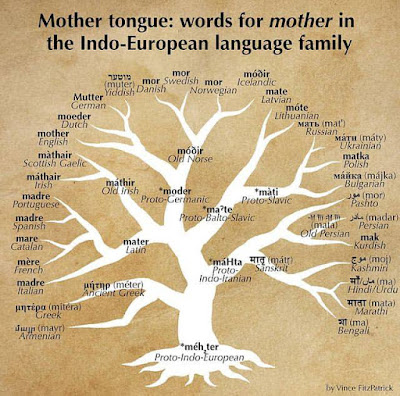Bonds of Reciprocity Outside of Heathenry
I have been thinking about Canadian heathenry, and both the challenges and strengths to having a heathen worldview in the Canadian landscape, as well as abroad. It can be tricky to quite fit in with the dominant christian over-culture. There is certainly a lot of room for misunderstandings. Of course, being raised in that culture, it is possible to blend in unnoticed the majority of the time. All of that is what it is though, and we have to work within that framework. More interesting perhaps, is looking at how heathen worldview can actually be a strength in our interactions with other individuals and groups.
I have been blessed in my life with many mothers. There is of course, my birth mother, who helped to shape me into the strong woman that I am today, but my heathen worldview has also led me to forge many reciprocal bonds with people of other cultural groups that are more familiar with bonds of reciprocity than mainstream Canadian culture.
One such special bond that I formed was when I was living and working in Thailand. I was buying dinner one night in the market near the school where I taught and I happened to drop a coin. In Thailand it is rude to step on a coin to stop it rolling as it is seen as an insult to the king, much how defacing money would be seen in Canada. Knowing this, I let the coin roll under the stall of a vendor and was unsure how to get it back, as my Thai language skills were limited. It was my good fortune that my soon to be Thai mother, Kaew, came along just then. She knew that the market was frequented by English speaking teachers, and she was looking for one who could help her edit an academic paper she had written in English. She was able to retrieve the coin for me and I edited her paper for her, beginning a wonderful cycle of reciprocity between us, where I was welcomed into her home as family. I learned so much about the similarities between Thai folk culture and heathen culture, including the veneration of spirits of place.
My second story is a bit closer to home, and a bit more difficult to share because of how life-changing it has been for me, and how many complicated social issues surround it. I was teaching in Northern Manitoba, along with my spouse on a very isolated reserve. When we arrived up North with only what could fit in two suitcases, in the middle of a storm, we discovered that our apartment was missing all 8 light bulbs. We were fortunate enough to meet Mary Elizabeth, who is from the Cree nation in Alberta. She was also teaching there that year, and she just happened to have several packets of lightbulbs with her. She was kind enough to share two bulbs with us to get us through the first night. We became fast friends, sharing many late night cups of tea or coffee. Later, when I left the North but my spouse was still under contract, I lived with Mary Elizabeth for a time in an apartment in Winnipeg. During that period she went through a dark time, and it is her belief that my tough love saved her life. She asked us formally if she could adopt us into her family in 2017. Since then we were honoured that she agreed to officiate our wedding this past summer, bringing to the forefront our reciprocal bonds that have uniquely shaped the direction of all of our lives.
Where I am going with this is that the concepts of frith, grith, and reciprocal bonds translate well to many cultural groups. It gives us, as heathens, a unique advantage in foraging ahead and building alliances and friendships with other minority groups, including the Indigenous peoples of Canada. We can find by being open with our heathen identities and ways of life that we can really connect on a deeper level with these communities. We have so much in common, and so much we can learn and share with each other. The first step is engaging in dialogue, and practicing active listening. We need to listen to understand, and foster bonds of trust going forward.
Image Source:
“Freyr and Freya” by Donn P. Crane (1878-1944)



